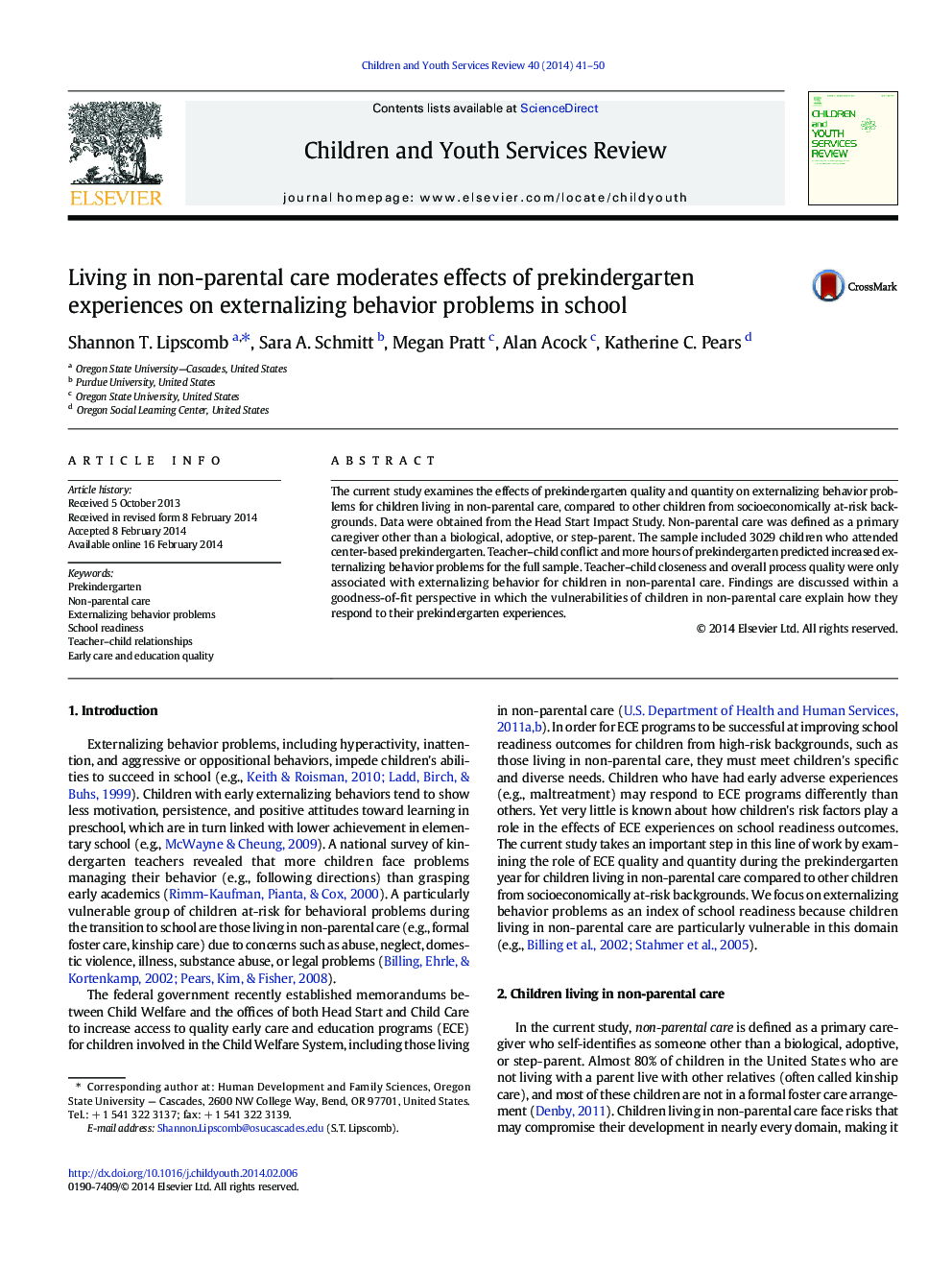| Article ID | Journal | Published Year | Pages | File Type |
|---|---|---|---|---|
| 6834366 | Children and Youth Services Review | 2014 | 10 Pages |
Abstract
The current study examines the effects of prekindergarten quality and quantity on externalizing behavior problems for children living in non-parental care, compared to other children from socioeconomically at-risk backgrounds. Data were obtained from the Head Start Impact Study. Non-parental care was defined as a primary caregiver other than a biological, adoptive, or step-parent. The sample included 3029 children who attended center-based prekindergarten. Teacher-child conflict and more hours of prekindergarten predicted increased externalizing behavior problems for the full sample. Teacher-child closeness and overall process quality were only associated with externalizing behavior for children in non-parental care. Findings are discussed within a goodness-of-fit perspective in which the vulnerabilities of children in non-parental care explain how they respond to their prekindergarten experiences.
Related Topics
Health Sciences
Medicine and Dentistry
Perinatology, Pediatrics and Child Health
Authors
Shannon T. Lipscomb, Sara A. Schmitt, Megan Pratt, Alan Acock, Katherine C. Pears,
